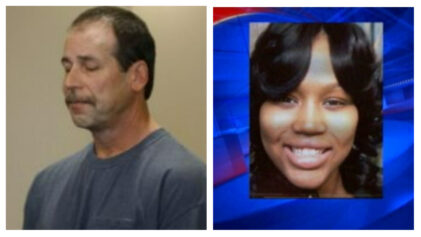For the first time, the world got a chance yesterday to hear the thoughts that went through Theodore Wafer’s mind—or at least his attorney’s version of them—on the night he killed 19-year-old Renisha McBride with a shotgun.
At the start of Wafer’s murder trial in Detroit, his attorney Cheryl Carpenter made dramatic opening statements to the jury, trying to convey the fear she said Wafer felt when he heard pounding on his front and side doors.
Wafer, 55, is facing charges of second-degree murder, manslaughter and committing a felony with a firearm in the fatal shooting of McBride.
“He was acting and reacting to escalating fear,” Carpenter said, according to a trial account by Al Jazeera America. “He had never been so scared in his entire life. It’s horrible and it’s sad that a 19-year-old woman is dead. But Ted is justified in what he did.”
But the prosecution would have none of that.
“There was no sign of any attempted burglary, there’s no evidence of any effort to breaking in,” prosecutor Danielle Hagaman-Clark said in her opening remarks. “His actions that night are unnecessary, unjustified and unreasonable. Because of that, a 19-year-old girl is dead on a porch in Dearborn Heights.”
Though race hovers over most every aspect of the trial, prosecutors have avoided bringing it up both before the trial and yesterday in the courtroom. Ironically, it was Wafer’s defense that raised the issue, acknowledging its centrality to a case where a white man in the suburbs killed a young Black woman from the overwhelmingly Black city, because he felt fear.
The jury consists of four Blacks and eight whites.
Carpenter said Wafer didn’t know the color or gender of the person when he shot her. She said he opened his front door, saw that the screen frame was a few inches out of its hinge, then fired the gun when McBride leaped onto the stoop, startling him.
“Ted is shattered,” Carpenter said. “He knows immediately that he killed somebody … It was only after that he saw it was a shorter person. She seemed dark-complected but he isn’t sure. He didn’t know anything before he shot. All he knew was, ‘People are breaking into my house.’”
In her 45-minute opening statement, Carpenter said Wafer had lived alone for 20 years in the house he bought from his grandparents. She said he was asleep in a recliner in his living room at around 4:20 a.m. when he was awakened by someone banging on his door.
“Boom, boom, boom, boom,” Carpenter shouted, attempting to simulate the multiple times that Wafer said McBride banged on his front and side doors.
But somehow, instead of investigating the source of the sound or determining whether it was a friend or neighbor in trouble, Wafer got his shotgun and opened fire.
Carpenter said Wafer heard metal in the front door frame “breaking.”
“They’re coming to get me,” Carpenter said, narrating Wafer’s thoughts in the moment. “It’s metal breaking. Breaking! On his front door. Ted hears it. Ted is thinking they’re coming in. They’re breaking [into] my house. Why? He doesn’t have a clue. He just knows they’re coming in.”
Prosecutor Hagaman-Clark recounted the steps Wafer would have needed to get his shotgun and fire it.
“It is the state’s position that taking a gun and having it loaded, having the safety off, opening a locked door and aiming at an unarmed stranger was a situation created likely to cause great bodily injury,” she said. “It has to be loaded, locked, the safety has to be off and the trigger has to be pulled. There’s no hair trigger on this shotgun. It requires 6.5 pounds of pressure to fire it.”
After the jury heard the opening statements, prosecutors called McBride’s mother and best friend to establish her state of mind. They testified that McBride had argued with her mother because she hadn’t cleaned the house, and she drank vodka and smoked marijuana that night.
The jury also heard from Carmen Beasley, who lives about a mile from Wafer on the Detroit side of the city limits, and who said McBride crashed at about 1:15 am. She testified that she tried to get McBride to stay put as they waited for the police and an ambulance, but McBride vanished.
“She just wanted to go home,” Beasley testified. “She wasn’t belligerent. She was young and she just wanted to be at home. That was her goal, to be home.”
But Carpenter said it doesn’t matter why McBride was there.
“Why was she there? Who else was with her? None of us have the answers. It really doesn’t matter. It’s not about Renisha. How would you feel if this is what you saw?”


